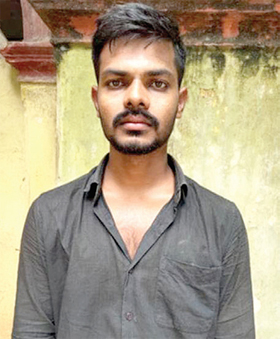
Corporate Citizen Claps For The ‘Silent’ Community-Linked Agricultural And Socio-Economic Revolution In The Picturesque Village Of St. Estevam (Jua) And The Nearby Villages On The Banks Of The River Mandovi
 Nestor Rangel
Nestor RangelIt took Nestor Rangel, an electrical engineer turned agriculturist and an activist, his team and an entire village of 500 families to not only revive farming as a sustainable primary income source but also stave off land sharks and developers from building concrete jungles in the fragile ‘Goan’ landscape. Post the pandemic, the closure of other industries has prompted many Goans to get back to farming in villages which had been abandoned in the past four decades for more profitable work abroad in the shipping sector or in cities like Mumbai. The flip side was that the villagers’ dependency on farming for income diminished and land remained uncultivated. This encouraged corrupt officials and land sharks to target these barren lands and sell it off to the highest bidder. “We decided to fight back by cultivating our lands,” said Nestor. Land was collectively owned by the village and distributed by an administrative unit at the local community level wherein they would allocate an acre of land to a family to either build a house or farm to sustain their family. The core administrative unit, handled leasing out the land to its residents. This land activism that began in 2018 to empower one village has snowballed into Nestor’s cumulative efforts in transforming other nearby villages to follow their model of community-based mechanised paddy farming. They cultivate using the time-tested ancestral methodology of estuarine agriculture system called Khazans. These are reclaimed lands from the river or the sea and is a built-up of the network of bunds that protects the agricultural fields and adjoining villages from tidal flows. The result is that Nestor now picks up paddy from all the farmers and facilitates the monthly sale of 10,000 kg of this rice. He sells rice from these Khazan lands which has a unique taste derived from its naturally occurring river minerals. Every two months he processes 25,000 kg of paddy and takes it to Kudal, Maharashtra, for processing. “My village doesn’t depend on farming financially. This is about protecting our lands from rampant construction. My activism isn’t protesting on the roads, but growing paddy on the fields and taking them back from builders,” said Nestor.
Corporate Citizen Slaps Offenders Who Have Had The Audacity To Trick Unsuspecting Covid-19 Patients In Recent Plasma Donation Scams
 Sandeep Reddy
Sandeep Reddy
Two separate incidences in Delhi and Hyderabad took the lid of scamsters who attempted to dupe people in the name of ‘Covid’ cures and most gravely for plasma therapy. Rules allow patients who have recovered from coronavirus to donate their plasma to other Covid -19 positive patients as a treatment mode a service that is currently free of cost. However, in the first case of its kind, a Delhi miscreant in the guise of a doctor and also a Covid-19 survivor allegedly promised to arrange ‘plasma’ on social media. His modus operandi was to demand money for transportation from Covid victims and their relatives in exchange for the promised ‘good’ plasma. Post-money transfers, the offender’s mobile would be non-reachable. Victims soon realised they had been duped and he has since been arrested. In another incident from Hyderabad, a conman identified as an unemployed graduate duped 200 unsuspecting victims by borrowing money on the pretext of donating plasma and supplying antiviral drugs for Covid treatment. He contacted prospective victims via social networking apps for supplying plasma or medicines. He would introduce himself as a Covid-19 survivor, a criterion to donate one’s own blood plasma. Demanding transportation costs for arranging either plasma or medicines, he would block the patient, or their families, post online money transfers. He has been charged under sections 406 (criminal breach of trust) and 420 (Cheating) of the IPC and under section 66(d) of IT Act, 2008, at 4 different police stations, including the Central Crime Station in Hyderabad. Times are difficult but victimising already exhausted patients battling against the pandemic, hints at a much greater socio economic pandemic lurking in the background!